The United Nations warned Friday that "many more will die" as a result of Israel's ongoing siege of Gaza, which has also caused sewage to flow into the Palestinian territory's streets.
Israel laid a total siege on Gaza, cutting off food, fuel, water and power supplies to the enclave.
"People in Gaza are dying; they are not only dying from bombs and strikes: soon many more will die from the consequences of (the) siege imposed on the Gaza Strip," said Philippe Lazzarini, commissioner general for the UN agency for Palestinian refugees (UNRWA).
"Basic services are crumbling, medicine is running out, food and water are running out, the streets of Gaza have started overflowing with sewage."
Alongside the siege, Israel has bombarded Gaza with air and artillery strikes since October 7.
The health ministry in the Hamas-run Gaza Strip says the strikes have killed more than 7,300 people, mainly civilians and many of them children.
During a press conference in Jerusalem, Lazzarini -- who said 57 UNRWA staff had been killed in Gaza during the war -- called for more aid to be allowed into the territory immediately.
"The current system in place is geared to fail. What is needed is meaningful and uninterrupted aid flow. And to succeed, we need a humanitarian ceasefire to ensure this aid reaches those in need," he said.
Limited convoys of aid -- food, water and medicine -- have entered through Gaza's Rafah crossing with Egypt, but the UNRWA chief noted that they have not included fuel, which is vital to keep critical services running.
"Bakeries, water stations, life support machines in a hospital -- all this needs fuel to function," he said.
"As far as UNRWA is concerned, we have fuel for today," said Lazzarini.
The agency normally needs 160,000 litres per day for its operations, but has now "drastically limited" its fuel consumption.
Israel has said it will not allow fuel to enter Gaza, arguing it could reach Hamas's armed wing.
"We have solid monitoring mechanisms... UNRWA does not and will not divert any humanitarian aid into the wrong hands," Lazzarini said.
At a briefing in Geneva, via video-link, Lynne Hastings, the UN humanitarian coordinator for the occupied Palestinian territory, said before October 7, some 46 trucks of fuel per day crossed into Gaza.
She said "very, very detailed negotiations" were going on to try to address Israel's security concerns, "which are quite legitimate, especially with respect to fuel, which we call a high-risk, dual use item".
"We need to get the fuel trucks in... and we need to do it in a secure way that offers Israel assurances to make sure that it's not going to be diverted," Hastings said.
Israel's army has called on people in the north of the Gaza Strip -- nearly half of its 2.4-million population -- to head south ahead of an expected ground offensive.
Hastings said an estimated 300,000 to 400,000 people were still left in northern Gaza, and Israel has been clear "that they don't want us delivering in the north", so UN staff would have to "assume certain security risks" to take life-saving aid to northern areas.
The UN's World Health Organization said Friday that only 23 out of 35 Gaza hospitals were still partially functional.
It said five trucks with WHO supplies had entered Gaza since October 7, with deliveries reaching five hospitals in the south and two in the north.
The UN's World Food Programme said it had brought in nine trucks of food assistance -- mainly canned food and wheat flour.
WFP normally works with 23 bakeries to provide fresh bread for 200,000 people in shelters, but said only two remain operational and "tomorrow there might be none".
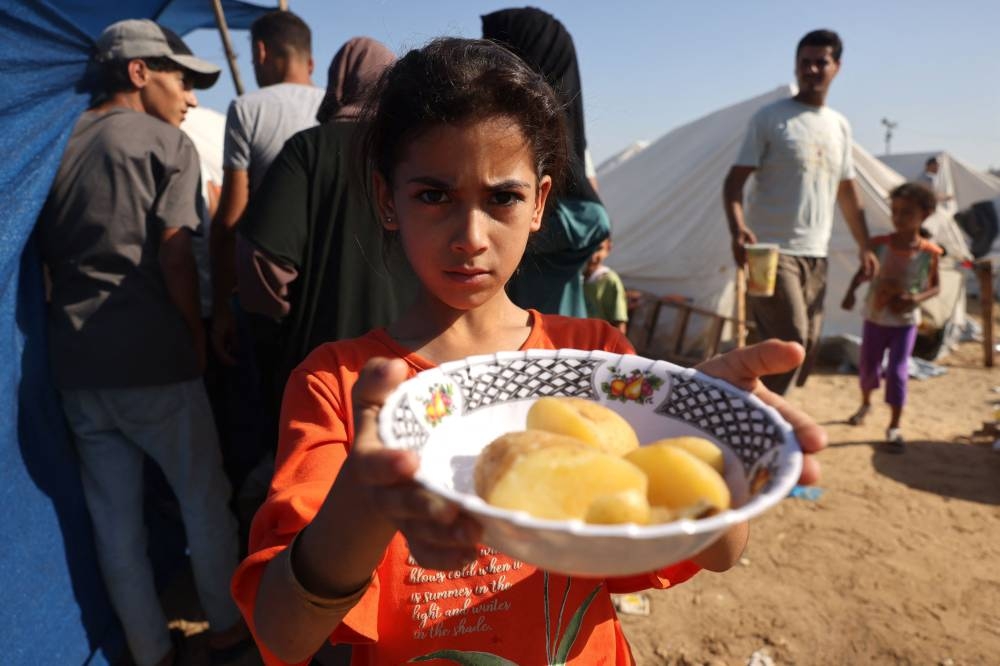
A displaced Palestinian girl, who fled her home amid Israeli strikes, shows her plate of food collected at a food distribution point as she and her family shelter in tents set up in a United Nations-run center in Khan Yunis, in the southern Gaza Strip on October 26. AFP
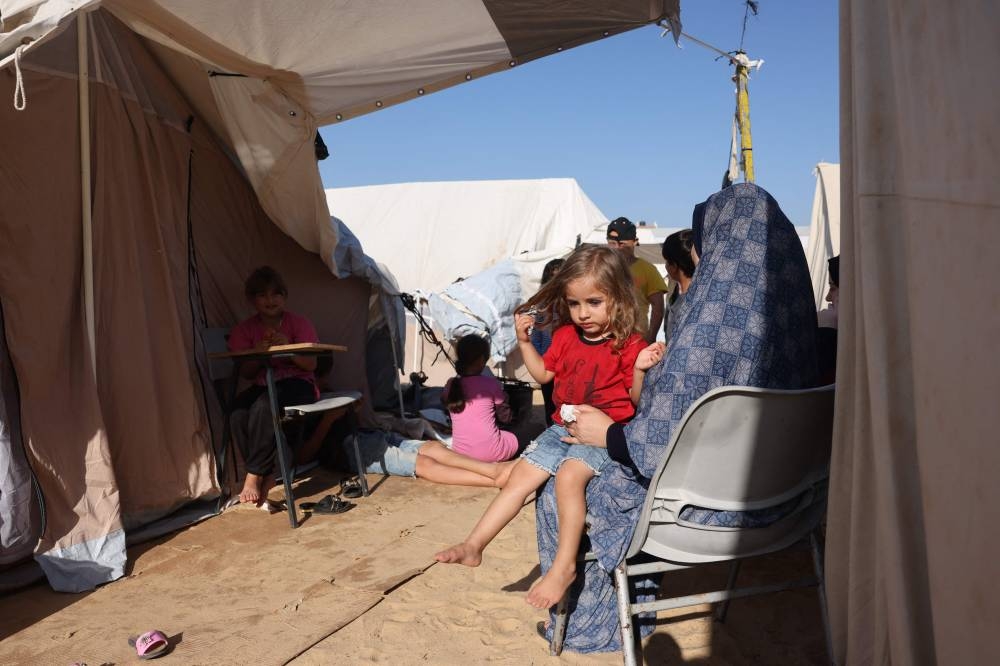
Displaced Palestinians, who fled their houses amid Israeli strikes, shelter in tents set up in a United Nations-run center, in Khan Yunis, in the southern Gaza Strip on October 26. AFP
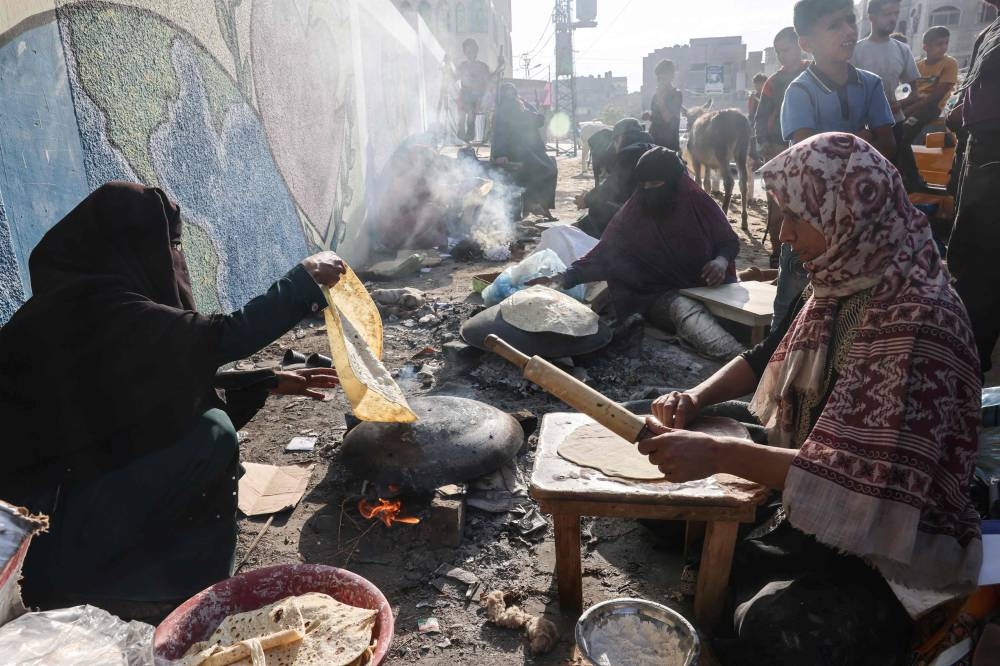
Palestinian women make traditional unleavened bread on an open fire at a shelter for displaced families mainly from the north of the Gaza Strip, at a UN-run school in Rafah, in the southern Gaza Strip on Friday. AFP
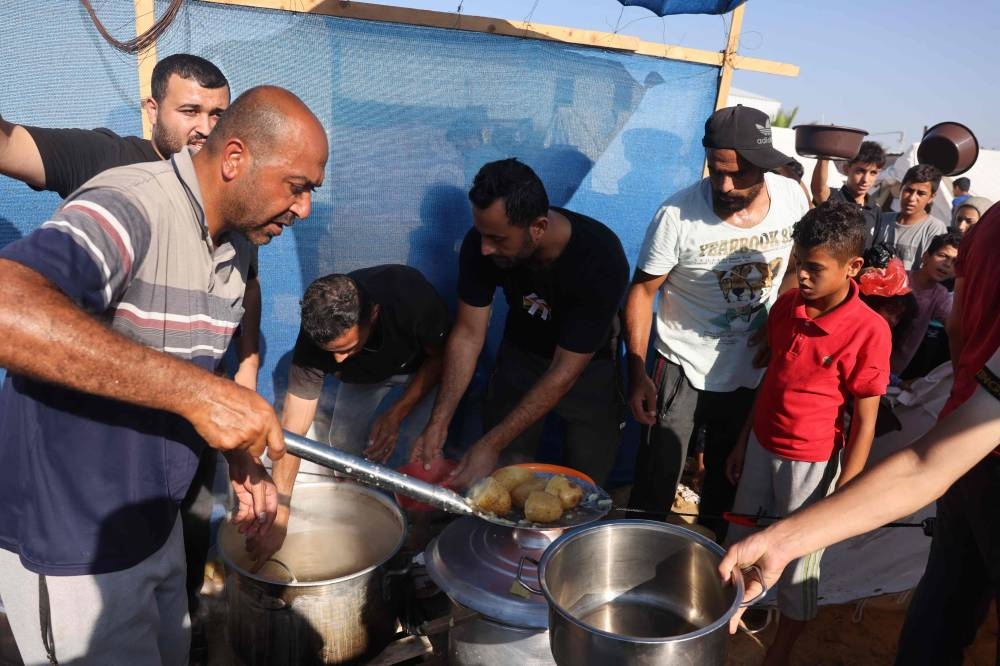
Displaced Palestinians, who fled their houses amid Israeli strikes, shelter in tents set up in a United Nations-run center, in Khan Yunis, in the southern Gaza Strip on October 26. AFP
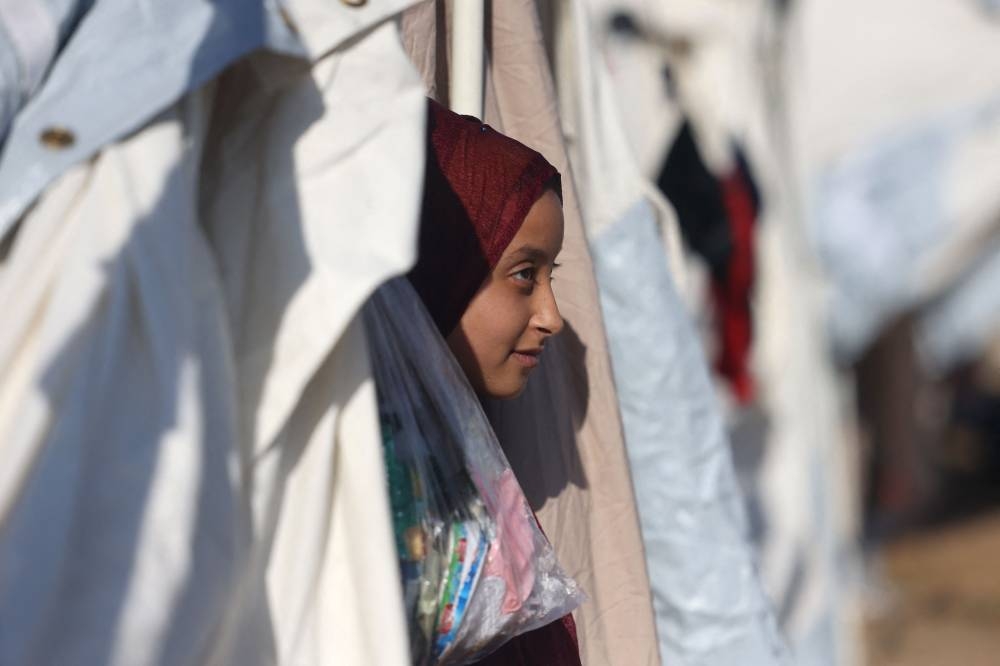
A displaced Palestinian girl, who fled her home amid Israeli strikes, peeks out of her tent shelter set up in a United Nations-run center, following Israel's call for more than 1 million residents in northern Gaza to move south, in Khan Yunis, in the southern Gaza Strip on October 26. AFP
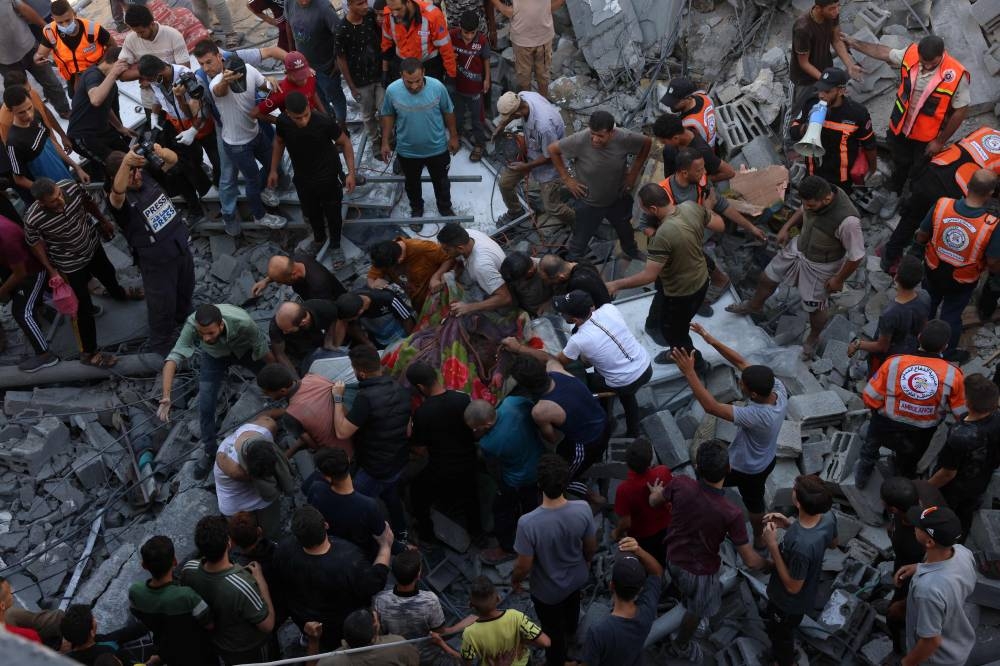
Rescuers and people remove a body from under the rubble of a collapsed building following an Israeli air strike on Rafah in southern Gaza Strip on October 26. AFP
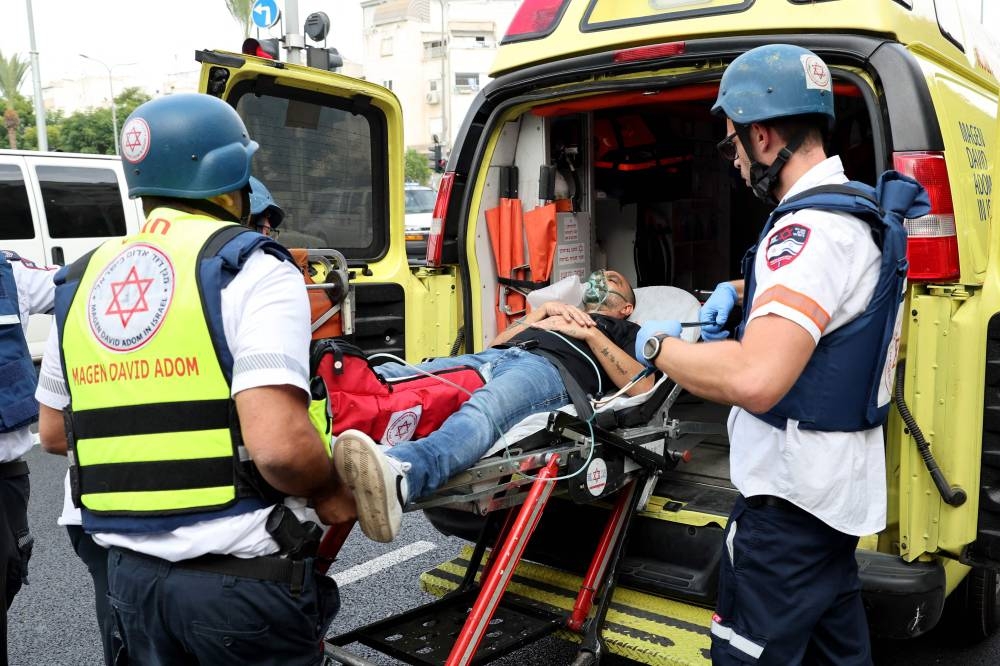
A man is ferried to an ambulance following a rocket attack from the Palestinian Gaza Strip on the city of Tel Aviv on Friday. AFP

French President Emmanuel Macron (R) meets with Commissioner-General of the United Nations Relief and Works Agency for Palestinian Refugees in the Near East Philippe Lazzarini (L) in Amman, on October 25, 2023. AFP
